Buddhist Women on a Path of Spiritual Awakening
Through the Dark Night
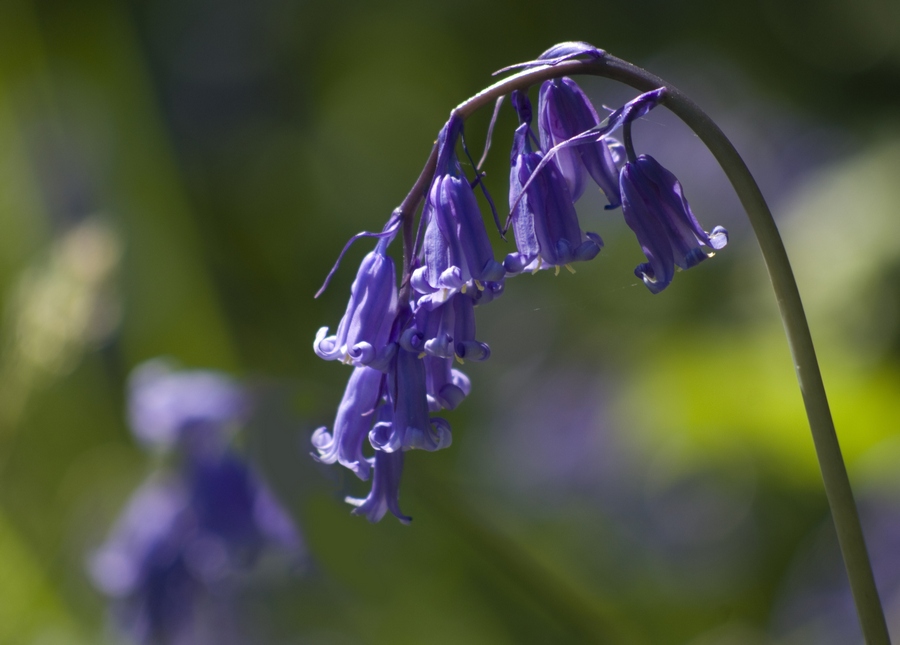 Revering the jewel of the Buddha,
Revering the jewel of the Buddha,
our greatest treasure and resource,
unequalled in this universe, immeasurable,
the supreme, excellent protection
that benefits gods and humans –
By the power of the Buddha, may you be safe,
may all dangers be prevented,
and all your sorrows pass away.
Revering the jewel of the Dhamma,
our greatest treasure and resource,
unequalled in this universe, immeasurable,
the supreme, excellent protection
which calms all fevered states of mind –
By the power of the Dhamma, may you be safe,
may all dangers be prevented,
and all your fears pass away.
Revering the jewel of the Sangha,
our greatest treasure and resource,
unequalled in this universe, immeasurable,
the supreme, excellent protection,
those worthy of respect, gifts and hospitality –
By the power of the Sangha, may you be safe,
may all dangers be prevented,
and all your sickness pass away.
Ratana Sutta
Years ago, during a dark night of the heart, I asked an elder Cistercian monk how to penetrate the darkness, how to sustain faith in one’s ability to keep going on the Path. He replied in his thick Irish accent, “When yah get really close to the sun, it burrrns.”
I listened and reflected deeply on his words. He meant for me to trust; to keep searching for light in the unfathomable depths, the interior darkness; and to persevere even though I felt unequal to the task.
We are prone to discouragement and easily underestimate our innate goodness and fortitude. We bear shame or believe that we are not good enough. But our strength and courage are not diminished thereby. They come to life as we burn through the layers of our conditioning with a generosity of heart that is both forgiving and fierce.
That burning opens us to the truth of change; and to a vastness of being beyond our frailty. It is indestructible. It is deathless. It allows us to be with the inferno of our day to day struggles, doubts, bouts of grief, fear, anxiety, shame, and so much more.
Our instinct is to run from this fire. Instead, we must keep turning towards it, balancing it with steadfast and dsicerning attention that can purify the dust of lifetimes while replenishing our strength and illuminating our minds in the process. Whatever the thinking mind presents, we notice where it takes the heart. . . and when it isn’t good, we turn down the volume and discover the emptiness of all thought waves.
We have watched and listened to these mental waves. Like the breath of the ocean, they crash ashore – rising, falling, rising, falling; sometimes dangerous, shocking, or overwhelming; sometimes smooth, pleasurable, and calming. Constantly changing, impermanent, fearful or beautiful, we have helplessly succumbed to their power. But at last, we see them with a new awareness that disarms the angst and turmoil of the mind, giving way to the voice of compassion, integrity and reconciliation.
As spiritual beings on a human journey, we discover this by opening to the spaciousness within us. Feeling our own struggle and pain – and that of others – with incisive insight, we enter into a process of waking up that is conciliatory and restorative rather than judgmental or destructive.
What is love?”
“The total absence of fear,” said the Master.
“What do we fear?”
“Love,” said the Master.
Awareness is the field of love and forgiveness, the Buddha’s map to freedom from fear and suffering. With a peaceful presence of mind, we direct attention to the heart’s native goodness. Grounded in contemplation of the body, we see the karmic repercussions of negative mind states and how to escape from them skillfully before they cause harm to ourselves or anyone else.
In this work, we will not be perfect from the ‘get go’. At times, the journey will feel too much – but we know the impermanence, suffering (dukkha) and emptiness that are universal, and that ours is the journey of all beings. Like a mountain climber, we gather the right equipment and gradually gain altitude to be able to breathe at the top.
On the path of awakening, we are emptying out delusion. First we have to awaken to all the dross within us and clear it out – moment by moment, breath by breath, day by day. At times we take one step forwards and two steps back – but we keep going. We have to learn to breathe, walk, speak and interact with a pure mind. Literally, we have to be re-trained from a to z, to let go of blind ways of seeing, thinking and knowing the contents of our lives and our minds – the ideas, opinions, and our attachments to all that we cling to. Our whole life is broken down into its components and reformatted – it is a veritable reformation.
Whatever misfortunes arise in life, through the darkest night, we learn to bow to the magnanimous face of Great Compassion. We bring forth from within – as diamonds from coal – the riches of a loving fearlessness.
Without dukkha, how would we grow free? Wherever we go, the Path is full of challenges. Dukkha is everywhere in different forms – because ultimately, its origin is within us. And it is there to be understood, and to teach us.
In the midst of the storm, at the thunder’s roll and the crashing of rain, just stop for a moment, listen within you and feel the full force of your breath pulsing in the darkness. That timeless rhythm of its tides is the ocean of life and the quiet of eternity. Therein also, we glimpse it – the faintest glow of the heart’s peace.
© Ayyā Medhānandī 2017
The Dhamma of Snow
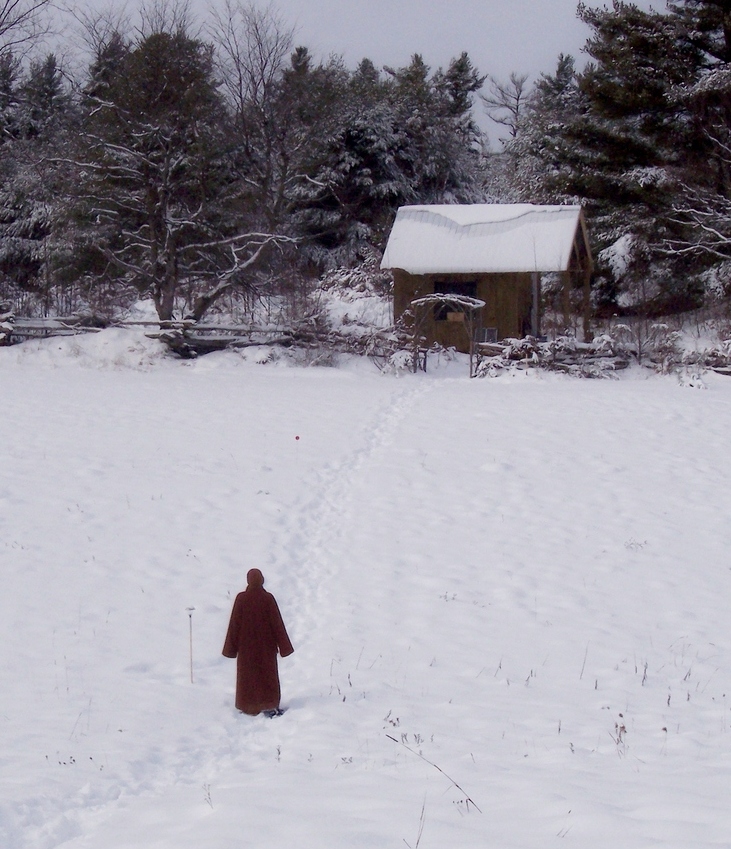
French version: Le Dharma de la Neige
One winter we had quite a lot of snow. In April, we were still navigating from building to building through narrow pathways dug into snow several feet high. The days were quite bright and sunny, and it was remarkable to us that the snow was still there.
At the end of our winter retreat, we were moving a very heavy carpet from one building to the other which none of us could lift. We managed to get it on a sled and pulled it from the main house to the meditation hall. And then, by that very afternoon, the snow was completely gone. We couldn’t understand how that had happened, literally from morning to afternoon.
One of our nuns wrote about it to her geophysicist son. This was his reply: “You seem very impressed with how the snow melted. I’m sure it was amazing to see. The world transformed overnight.
Melting is a nonlinear process, which means melting begets melting. Also, snow requires a lot of energy to change from ice to water, and this energy does not cause any change in temperature. What this means is that the snow can actually be above freezing without melting. If all the snow gets really warm over a few nice days, then it can melt all at once, really fast. As the melted snow starts to run through the unmelted snow, it helps to speed up the process. Then, when the ground appears, it absorbs much more sunlight and the melting really speeds up. The melting has probably been going on for weeks, unseen, and then the snow layer collapsed all at once.
This sort of regime shifting happens all the time in the earth sciences. Things hold on the way they are, even in very unfavorable conditions, and then at some invisible point something snaps and everything changes. Some scientists are worried our climate may act like that, that it might all of a sudden change dramatically because of the way we are forcing it.”
His description is very fitting to our practice. The first parallel that stands out is this: “Melting is a nonlinear process.” In the same way, following the Noble Eightfold path is a nonlinear process, which means “melting begets melting,” just as waking up begets waking up. As the defilements – greed, hatred, and delusion – melt away, the process of purification speeds up our relinquishment of impurity.
The melting of the hindrances, just like the snow, requires a lot of energy to change from ice to water, to change from habit to letting go. But “this energy does not cause any change in temperature.” In other words, the energy in and of itself doesn’t cause the melting to happen completely.
That means that we can still hang onto our poor habits. We can still be stuck in our ignorance, in our delusion, in our greed and our hatred, for a long time. Even if we’ve done years and years of meditation, or weeks and weeks of retreats. Even though we’ve practiced for a long, long time, it can look like nothing has happened. That’s because the defilements can hang on for a long time, even in very unfavourable conditions. They don’t like the fact that we are working to melt them. But they hang on anyway, and we get frustrated—which they do like.
The next metaphor is this: “The snow can actually be above freezing without melting. As the melted snow starts to run through unmelted snow, it helps speed up the process.” In the same way, we use effort to sustain mindfulness and diligence, with ardor, devotion, and clear comprehension. We keep working to prevent unwholesome states from continuing. We work to remove them and to encourage wholesome states to arise, and to sustain them.
If we continue that process, and give it sustained effort, then when even a little bit of the ground of awakening begins to appear, it also has a profound effect on this process. Just like the sun-warmed ground that appears beneath the snow melt, shifting and speeding the process dramatically.
From underneath, there’s an invisible letting go of those impurities that we may not even notice. Say you have a shirt that’s very badly stained, and then you bleach it or soak it. It will get really clean. But a few stains will still show themselves, and you’ll notice those more than anything. More than all that was washed away, we notice what’s left.
So it is with this process. We’ve worked so hard. We’ve made such valiant effort. And still there are impurities that we’re shocked to find. We get discouraged and may even think we should give up. “It doesn’t work!” we think, without recollecting how much we’ve already managed to cleanse, to purify, to settle, to see.
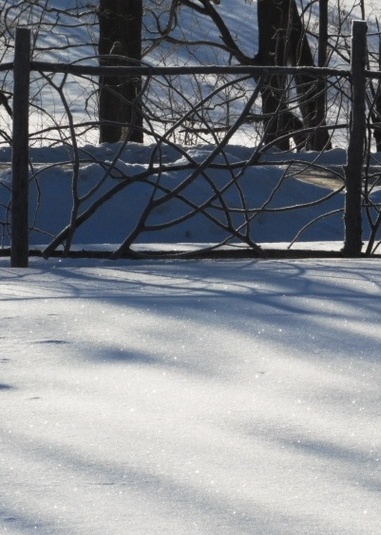 “The melting has probably been happening for weeks unseen.” Yes! Impurities have been melting and melting for months, for years, even. We may even have been doing this for lifetimes. Then suddenly, this layer of encrustation collapses. When the conditions are right and we reach a certain threshold, it falls away. A door opens, an understanding blossoms. There’s a sudden, real, penetrating insight, and a sense of realization. Something deep has been abandoned.
“The melting has probably been happening for weeks unseen.” Yes! Impurities have been melting and melting for months, for years, even. We may even have been doing this for lifetimes. Then suddenly, this layer of encrustation collapses. When the conditions are right and we reach a certain threshold, it falls away. A door opens, an understanding blossoms. There’s a sudden, real, penetrating insight, and a sense of realization. Something deep has been abandoned.
But there’s more work to do. “Things hold on this way even in very unfavorable conditions.” For the defilements, ethical behaviour, sīla; concentration, samādhi; and discernment, paññā, are most unfavourable. But for awakening, they’re very favourable. We have to remember to be patient, not to have expectations. Then one day we will find ourselves understanding suffering, dukkha, knowing its origins, observing it, and watching it end. Seeing it cease and letting the Noble Eightfold path rise up in front of us. Right view, right intention, right speech, right action, right livelihood, right effort, right mindfulness, right concentration.
How are we spending our time? How do we make our living? Are we doing the practice or are we just sitting? As Ajahn Chah said, “Even chickens sit.” We’ve sat this many hours today, but what kind of work have we been doing? How have we applied the mind during that time? The process itself may be nonlinear, but we must be relentless in our commitment to following the path.
The highest expression of our human nature is to purify our minds. To clear away the clouds, the sheets of snow, the ice that we’re encased in. We’re frozen in our fear, frozen in our anger, in our opinions, in our judgments of ourselves and of each other. We are locked in. We have to find the way to put the key in the lock, even in the dark.
To do this, we need to be able to feel our humanity, to feel our nature from the inside. Not superficially but from within, where the invisible factors of mindfulness, clarity, faith, energy, concentration, and wisdom can dismantle and dissolve years and years of deluded ways of perception, of relating to life. That’s what this practice brings about, given enough patience and diligence and surrendering to the process. It brings about a spiritual transformation. It’s invisible. We don’t know it right away, but after years we begin to see.
We see the changes in each other. We see the changes in ourselves. It’s quite remarkable. When you’re sitting with different states of mind arising and it seems interminable, trust that this process works. In some ways visibly, in other ways invisibly. Like the invisible melting of the snow beneath the crust of ice. It does work if we keep putting in the causes and conditions for mindfulness to arise, for diligence to arise, for contentment and gratitude to arise, for generosity to be expressed, for concentration to be matured, for wisdom to manifest. The results will take care of themselves. They know exactly when it’s time.
Trusting in the practice is key. We need to trust and persevere with determination. And that involves giving up. Nekkhamma, renunciation, is a giving up. Not just shaving your head and wearing robes. That’s not the real giving up. That’s just on the outside. As a friend of mine once said, you have to shave your heart. We shave our heads every week, but the hair grows right back. So we keep on doing it.
It’s a constant giving up. Giving up the pleasures of the senses. Wanting another hit, another kind of dessert, another kind of experience, another kind of retreat. Judging, evaluating, wanting, regretting, being angry, grieving – all of it. We constantly turn and twist through the contortions of human life until we find that place where we can see through to our true nature, and the pure mind comes into view like a bright moon.
This is a complete letting go of conditioned things, conditioned experiences, conditions in their worldly way, and giving ourselves to that which is unconditioned, until it rises up within us. We cannot find the unconditioned out in the world. We can only know it in the heart. It arises from this very body, which is death-bound, which must be washed and cleaned and tended to, and that dirties the clothing we wear. Out of this dirt-producing, odour-producing body can come an awakened mind, can come transcendent beauty.
So we use the body. We respect it and honor it for the purpose of spiritual awakening, not as a pleasure-producing entity. Our goal is not to squeeze out every last ounce of joy and pleasure from worldly things, but finally to arrive at that farther shore that we’ve been striving for. This is the meaning of the human journey for those who are willing to trust and stick to the practice.
When we allow the mind to get overexcited, overheated about things that have already happened, or about the future, we’re deepening the groove of our mental bondage. To allow anger to abide in the mind, to allow unwholesome states to pervade the mind, is like allowing Mara to sit on our backs. That won’t help collapse the kilesas, the impurities of the heart.
Everything is contained in these teachings. They’re so vast. My revered teacher Sayadaw U Pandita, the renowned Burmese meditation master, always told me, “Don’t read the books. Read your heart first.” If we study our own hearts, we’ll find that everything is written there. Everything. And if we study the suttas, we can hear the Buddha’s words and they will encourage us to keep practising.
Even when daggers have been thrust into our hearts, when we’ve experienced the most painful thing imaginable, like a mother and father losing their own child, we can still find peace through the practice. We do this by investigating the very ground of our being and discovering that there is no being in there. No solid being that we can call “me” or “mine.” Even in the face of terrible loss, we can see through the pain to the ending of pain. Not only for ourselves, but for all beings.
That’s what our journey represents: the possibility of going to the Everest of the spiritual realm. That might seem impossible from where we sit now, but we have to trust this process. And like the sudden vanishing of the winter snow, it’s nothing short of magnificent.
© Ayyā Medhānandī Bhikkhunī
Tricycle Magazine, USA, 2016, reprinted with permission
A Winter Blessing
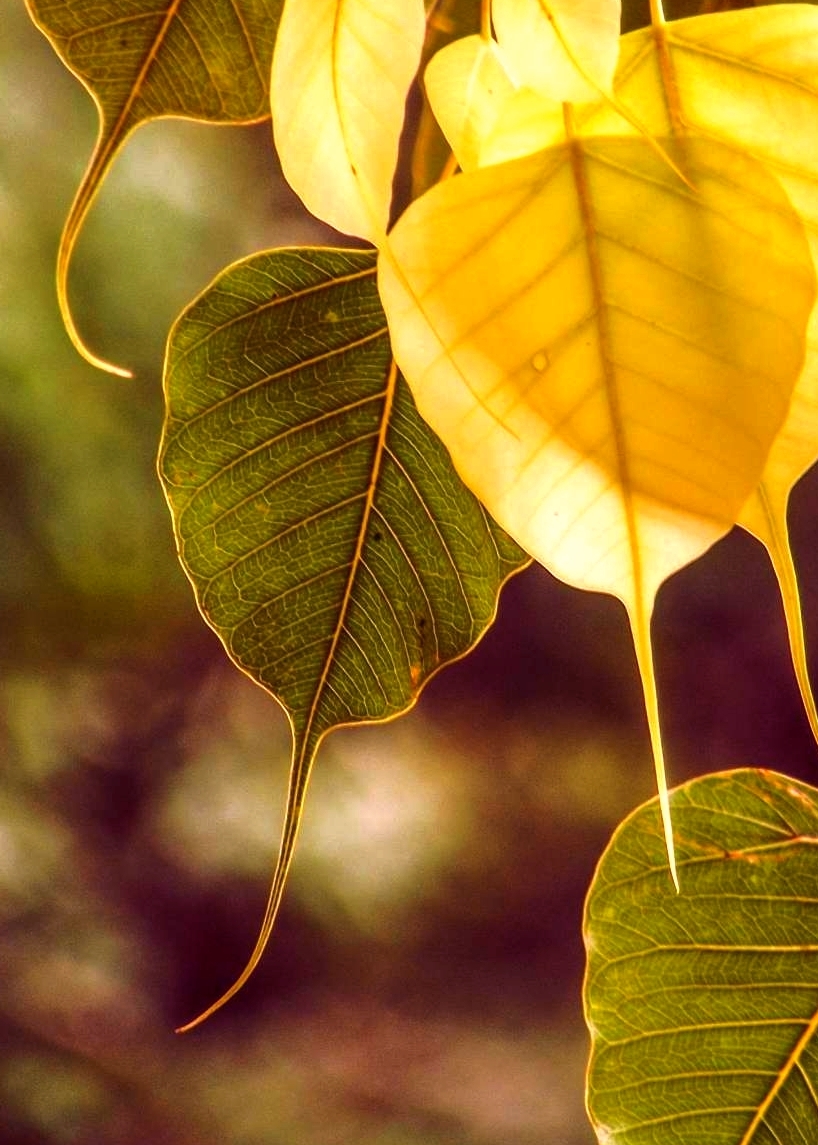
The Ratana Sutta chant, Verses on the Treasures of the Dhamma:
Visakha, the Buddha’s devotee, reflects on her generosity to the Sangha:
“When I remember it, I shall be glad.
When I am glad, I shall be happy.
When my mind is happy,
my body will be tranquil.
When my body is tranquil,
I shall feel pleasure.
When I feel pleasure,
my mind will become concentrated.
That will bring the development
of the spiritual faculties . . .
the spiritual powers,
and the enlightenment factors
in me.”
Vin. 1:290-94
Chant, Breathe, Trust
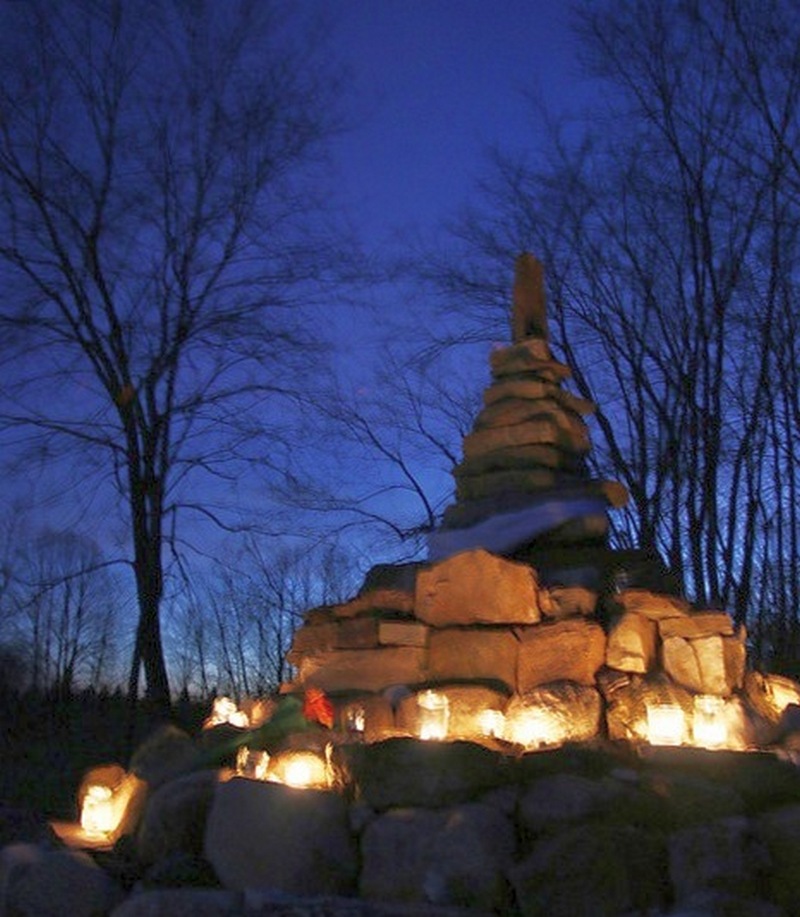 At dusk, our home grown stupa alight after a memorial to dear friend Martin Edge. We chant, breathe, reflect and renew our trust. Listening to the sky touching earth and its echo in the mind dissolving within itself.
At dusk, our home grown stupa alight after a memorial to dear friend Martin Edge. We chant, breathe, reflect and renew our trust. Listening to the sky touching earth and its echo in the mind dissolving within itself.
Ayyā Medhānandī reflects on pure internal audios from inner horizons.
Unearthly voices join our NAMO chanting at SIMT-TBC retreat
The Dhamma of Drought

September 18th was to be a full moon time alms-giving ceremony to honour our ancestral mother – the Buddha’s surrogate mother – Arahant Mahapajapati Gotami Mahatheri.
That is no longer possible for us. Under the present conditions, we are unable to accommodate visitors and have to cancel the program. Why?
Due to many months of drought, the water shed in our area is very low and our well is drying up. Use of our facilities such as toilets/sinks/showers is severely compromised. We rely on the kind gifts of water brought in from outside sources by many different hands in glass bottles or plastic containers; and we use infrequent rainwater collected in our rain barrels.
We are so vulnerable – and yet so blessed. We are safe and well. People bring us enough food and drinking water. Day by day, we learn the art of conserving water. But more importantly, the Dhamma shows us the way to make peace with these ever-changing and unpredictable climate conditions.
We are opening the Hermitage once a month for a Sunday meditation from 1-3 pm – but will not have indoor bathroom facilities through the next 8-12 weeks of drought predicted by the health authority. Even for these brief visits, we ask those who come to bring their own water to drink.
We hope you always have enough food and water. May you also have enough mindfulness to care for yourselves and each other – to know the true gift of water, of life, of goodness.
May kindness prevail. Though not easy, let us remember – it is always possible.
We send you the blessings of the Noble Triple Gems.
Sunday Meditations
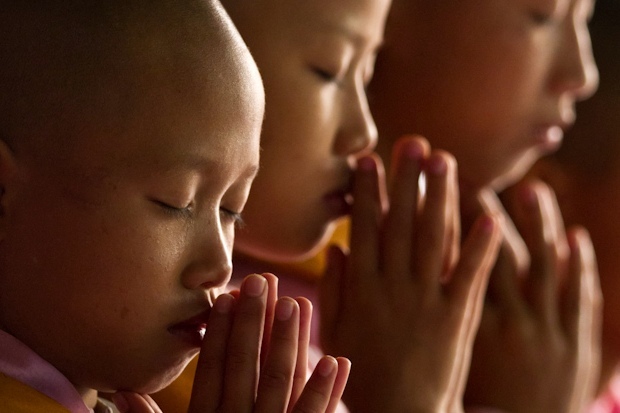
Our last Sunday Meditation for 2018 will be held on December 3lst to bring in the New Year. We welcome you to join us for chanting, meditation and a Dhamma teaching from 1:30-3:30 pm.
The monastic community and a group of dedicated practitioners will be on retreat for the duration of the Winter.
We will resume the Sunday Meditation program on March 31st with a talk on “Joy – An Under-rated Factor of Enlightenment”.
Bhante Rahula Brings Blessings
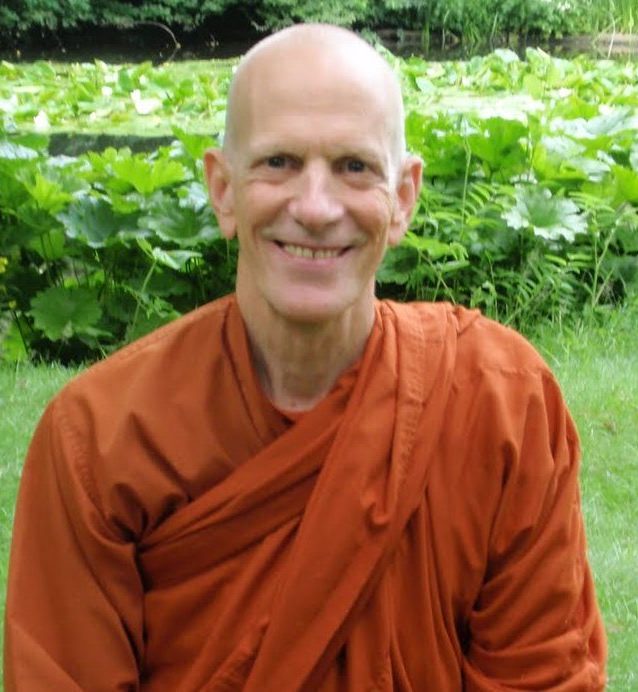 On June 13th, Bhante Rahula gave a stunning afternoon talk on the dynamics of meditation practice to a small group of eager listeners who were able to come midweek to hear his teaching at Sati Saraniya Hermitage. His rare and beautiful Dhamma sharing was only recorded in our hearts and minds. Fortunately, many of his talks are available online. And for his next visit, we will have our recorder ready!
On June 13th, Bhante Rahula gave a stunning afternoon talk on the dynamics of meditation practice to a small group of eager listeners who were able to come midweek to hear his teaching at Sati Saraniya Hermitage. His rare and beautiful Dhamma sharing was only recorded in our hearts and minds. Fortunately, many of his talks are available online. And for his next visit, we will have our recorder ready!
Dhamma Teachings in Western Canada
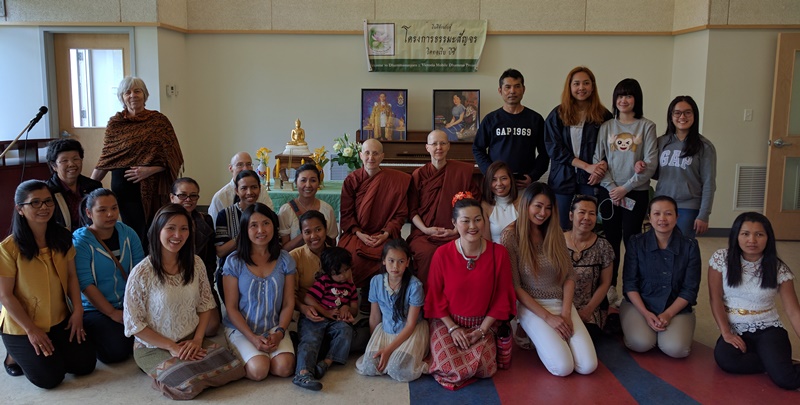 Ayyā Medhānandī and Ayyā Nimmalā at the Kalayanamitr Buddhist Society Vesak celebration in Victoria, B.C., May 22, 2016 celebrating the Buddha’s birth, enlightenment and Parinibbāna. The event included an alms-giving ceremony, guided meditation, Pali chanting, Dhamma talk and discussion time.
Ayyā Medhānandī and Ayyā Nimmalā at the Kalayanamitr Buddhist Society Vesak celebration in Victoria, B.C., May 22, 2016 celebrating the Buddha’s birth, enlightenment and Parinibbāna. The event included an alms-giving ceremony, guided meditation, Pali chanting, Dhamma talk and discussion time.
Sayadaw U Pandita
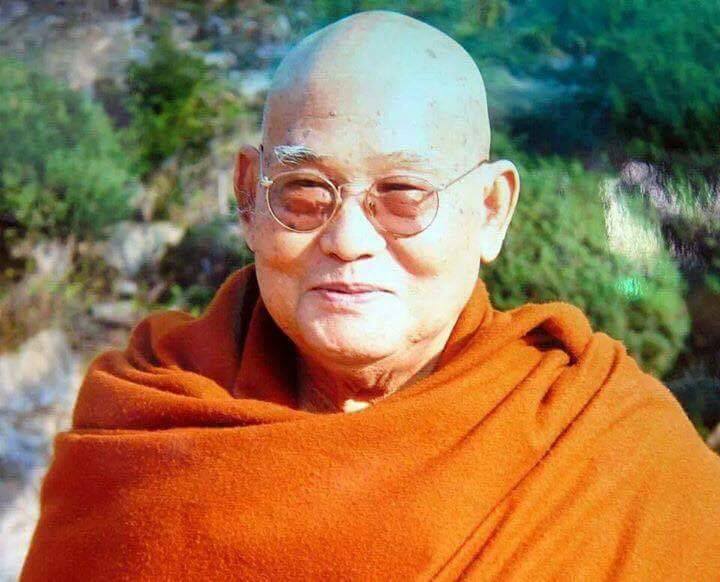 With palms on my heart, I remember and pay homage to a very rare and great being – Sayādaw U Pandita-bhivamsa of Burma – Theravāda Buddhist meditation master, teacher of teachers and practitioners and great spiritual warrior who left an indelible legacy of the Buddha’s teachings.
With palms on my heart, I remember and pay homage to a very rare and great being – Sayādaw U Pandita-bhivamsa of Burma – Theravāda Buddhist meditation master, teacher of teachers and practitioners and great spiritual warrior who left an indelible legacy of the Buddha’s teachings.
My preceptor and most venerable spiritual father, Dhamma benefactor and mentor for the last 30 years, Sayādaw U Pandita passed away on April 16, 2016 at the age of 94. These decades as a nun – my very name, robes, shaved head, whatever requisites I have received, my practice – all are his blessings.
Born on July 29, 1921 in Burma, Sayādaw U Pandita lived through dramatic periods of Burma-Myanmar’s history – under British colonialism, Japanese occupation, independence followed by 25 years of military dictatorship, and in 2016, reprieve in the form of a fledgling democracy led by one of his own students.
For more than 60 years of his life – even well into his 90’s – Sayādaw travelled the world, tirelessly teaching retreats and serving as spiritual advisor to retreat centers, monasteries and Buddhist organizations. He was revered as a leading authority in the theory and practice of samatha and vipassana meditation. During his lifetime, Sayādaw’s knowledge, fearlessness, dynamic teaching skills, and wise compassion helped to inspire a modern meditation tradition of global proportions.
Sayādaw first entered the Mahābodhi Monastery at the age of seven. Even before studying meditation under the late Venerable Mahāsī Sayādaw, he had become an accomplished Buddhist scholar. He gained distinction when Mahāsī Sayādaw chose to send him with two other monks to teach Dhamma to the people of Sri Lanka during the 1950’s.
After Mahāsī Sayādaw died in 1982, Sayādaw U Pandita became his lineage heir and abbot of the Mahāsī Sāsana Yeiktha in Yangon, Myanmar. His influence rapidly spread from Burma to the Orient and the West. In 1991, Sayādaw founded Panditarāma monastery in Yangon and became its Ovādacāriya Sayādaw (head preceptor). It now serves students internationally as one the great Theravāda meditation and study centres of the world with branches in six foreign countries.
Two of his best-known collections of Dhamma talks are In This Very Life: Liberation Teachings of the Buddha and The State of Mind Called Beautiful.
Joseph Goldstein, a founding Insight Meditation Society (IMS) teacher, shared his thoughts about the loss of Sayādaw U Pandita on LionsRoar.com: “He was such a powerful influence in all of our lives, urging us on to realize our highest aspirations. His great service to the Dhamma is inestimable. It feels like the passing of an era.”
Sharon Salzberg, also a founding teacher of IMS, shared her impressions: “We brought Sayādaw U Pandita to the Insight Meditation Society in 1984, to lead a three-month silent retreat. Joseph and I had never met him before but sat that retreat under his guidance. U Pandita Sayādaw turned out to be quite fierce and demanding. He also absolutely brought out my best effort, no holding back, and revitalized my meditation practice. I tell lots and lots of stories about things he said during that retreat. Every once in a while I think, “1984 was a long time ago!” But still they are important experiences! The following year, 1985, I went to Burma, again for three months, to practice intensive Loving-kindness meditation under U Pandita Sayādaw’s guidance. Once again my practice was transformed, and a whole new direction for my teaching was established. I can’t even find the words to describe how important he’s been for me.”
Sayādaw gave selflessly the gifts of his boundless compassion and wisdom. He instilled us with faith in our ability to awaken. He ignited in us courageous effort, a sense of urgency, and fastidious Dhamma practice. With reverence, joy, and gratitude, we carry these inestimable blessings forward for generations to come.
Ayyā Medhānandī
Winter Without Discontent
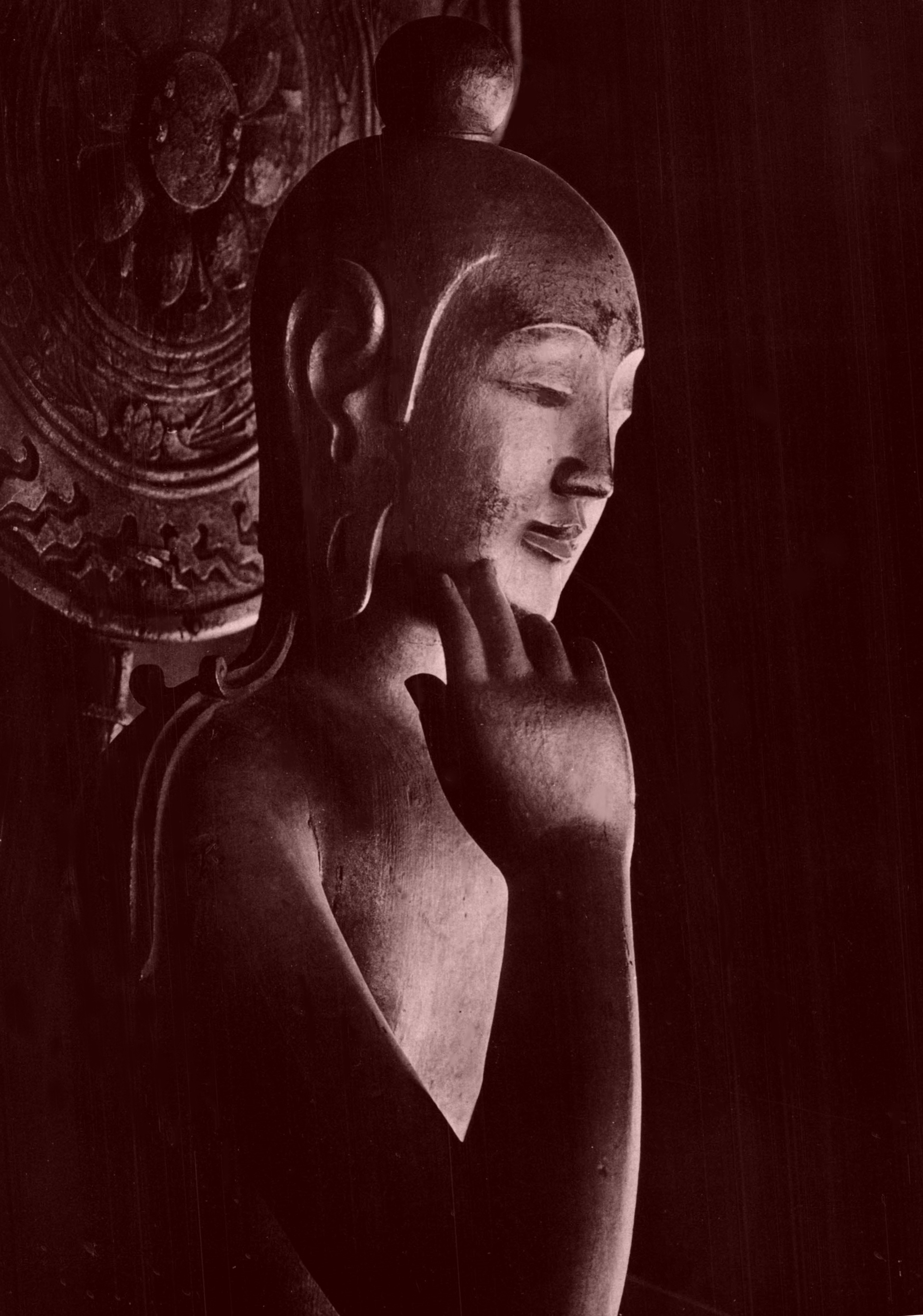
Winter’s silent retreat – a time for contemplating the ways of the world, the mind, and the way of peace. In a world full of fear, fear need not be an obstacle.
We can approach it with the mind of a doctor, inquisitive, attentive, and discerning. Or like a scientist in a laboratory studying cancer cells, we examine fear through the microscope of the mind. Then we may see it with new eyes – not frightened of it, not cowering in its presence.
Why do we allow fear to hold us hostage or bow to it as to a powerful monarch? Can we treat it as a meditation object? Let us for a moment not be averse to it or believe our perception of it as solid. Instead, feel it in the body. Where and how is it felt: in the chest, stomach, throat? Is it a heat, pressure, trembling? Do we shrink as soon as it arises, thinking it will persist?
Now we scan it attentively, knowing its contours, breathing into it as we widen our attention throughout the body. We literally give it more surface area so that the heat lowers. It becomes possible to watch more objectively.
We notice the dukkha of it, the pain, so unpleasant. That pain is also not solid. It rises up and falls away. It changes in a flow of sense impressions. Knowing that, and feeling it as it really is without jumping to the past or future, we live it as pure sensation; a feeling – mental, physical or both.
We are seeing and learning that it is not fear-full, just a burning, a force; beginning, searing through the body and mind, ripping, then fading, abating, ending, in waves of energy release or mind moments. Natural process.
The Buddha teaches us to examine our conditioned responses to fear by pondering and seeing these nuances – arising and ceasing endlessly. They reveal fear’s true essence, its nature. It is suffering. And not who we are. It doesn’t last. How can it be ours? That’s the Dhamma of fear – the truth of it.
We can also ask, what is its opposite: trust? confidence? courage? faith? Bringing up compassion for ourselves, for our effort, even reading this article, or remembering our perseverance through a difficult time; rediscovering what is beautiful within us – our good words and kind acts, however small – we give space in the body for fear to change. It becomes diffuse, losing its usual density, and fades away.
As the mind opens and clears, we usher in gratitude, loving-kindness, more compassion, and with it, wise reflection. When any of these bright qualities preside, fear withers. Such is our potential to disarm fear and heal – turning the heart to its own innate goodness and wisdom – again and again and again.
We try this many times, patiently. Little by little, we learn how it works, how to move from fear to non-fear, from contraction to calm, from disquiet to contentment and ease. As joy and trust infuse our awareness, we touch the beauty of the present moment.
Each moment of knowing the truth about ‘fear’ and emptying ourselves of it, we gather a garland of peace moments. Like the empty reed that becomes a flute, we die to fear. And the pure love we seek is known, is here.
Instead of serving fear, may we be the ready servants of compassion.
Ayyā Medhānandī
